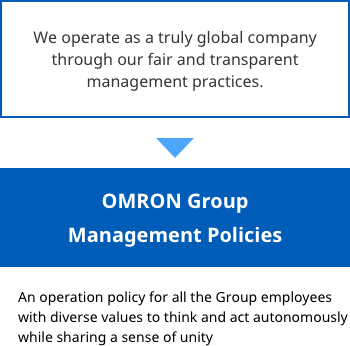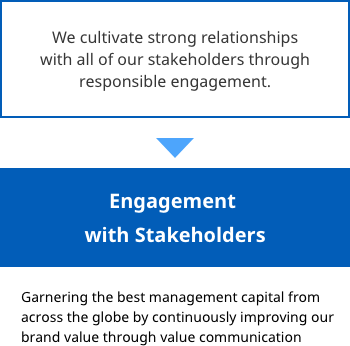The KURUMAZA
An Opportunity to Engage in Direct Dialogue with the President and CEO
The KURUMAZA is a forum for communication between the President and CEO and employees, which is organized regularly for the purpose of fostering mutual understanding through dialogues with employees and making the OMRON Principles the driver for the company's growth.
Past participants found the opportunity both engaging and informative, saying, "Besides realizing the importance of the OMRON Principles and the necessity of having a workplace culture that encourages productive discussions, I was able to get to know Mr. Yamada better" and "Mr. Yamada was kind enough to give me practical advice on my everyday concerns."
Their enthusiasm is shared by President and CEO Yamada, who commented, "To me, the KURUMAZA is a great opportunity to become informed about the challenges and concerns that face those on the frontlines of our business, listen to what they have to say, and hopefully let them know who I am. Participants are most welcome to bring up anything, such as their workplace challenges or what they aspire to do. It also gives me a great deal of energy to communicate directly with our employees and compare notes about this and that." We will continue to organize these opportunities at our sites across the globe.












